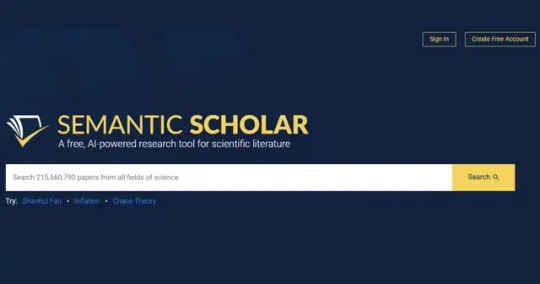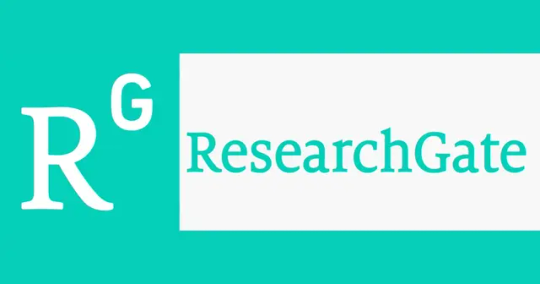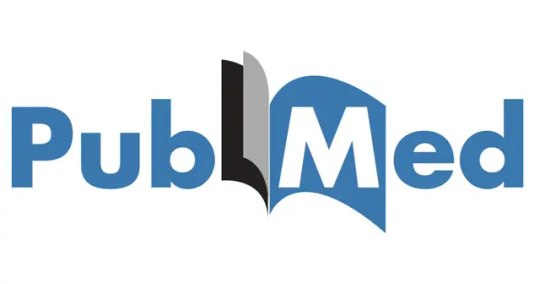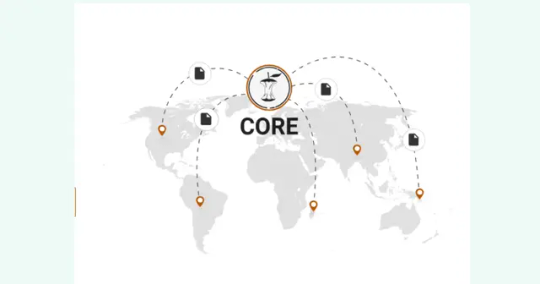Welcome to ScholarsEdge, where knowledge meets empowerment. We are dedicated to fostering academic excellence and nurturing the scholarly community through a diverse array of e-workshops and research training programs.Visit: ScholarsEdge
Don't wanna be here? Send us removal request.
Text
12 Biggest Challenges for PhD Student: From Stress to Success

PhD candidates frequently face obstacles, including isolation, ambiguous expectations, financial stress, and career uncertainty, which can deplete their time and energy. This article serves as a valuable resource, simplifying these common challenges and offering practical guidance. It emphasizes essential tips like enhancing time management skills, maintaining effective communication with advisors, and conquering imposter syndrome. By tackling each hurdle unique to PhD students, the article aims to provide valuable insights and solutions, fostering a supportive and encouraging environment. The ultimate objective is to empower students with the tools needed to navigate their PhD journey successfully and cultivate resilience in the face of these challenges.
Isolation and Loneliness in the PhD Journey
The pursuit of a PhD often brings forth a sense of isolation and loneliness among many students. This is attributed to the inherently solitary nature of research work, where individuals delve deeply into their specific subjects. While this focused approach is crucial, it can lead to a profound sense of loneliness, given that humans are inherently social animals. In the quest for specialized knowledge, students may become engrossed in their own research worlds, creating a disconnect from the shared experiences of their peers, which may not appear problematic initially but indeed is. The demanding nature of PhD work, coupled with extensive hours devoted to research and writing, can exacerbate this sense of isolation.
Addressing Isolation and Loneliness for PhD Students
To tackle this issue, it is crucial to create opportunities for collaboration and discussion within the academic community. Workshops, seminars, and collaborative projects provide avenues for students to connect, share experiences, and find common ground. Establishing a supportive environment where students feel at ease expressing their challenges can significantly alleviate the isolation often experienced during the PhD journey.
Work-Life Balance Challenges
An imbalanced work-life for PhD research scholars can lead to stress and burnout. Excessive hours spent on research without breaks can impact mental health, affecting overall well-being. This imbalance can extend to personal relationships and result in decreased productivity.
Addressing Work-Life Balance for PhD Students
To address this challenge, students should prioritize time management as a fundamental step, setting clear work boundaries. Regular breaks, adequate sleep, and engagement in physical activities are essential. Establishing a realistic work schedule, communicating expectations with advisors, and seeking support when needed all contribute to achieving a healthier work-life balance.
Unclear Expectations in PhD Journeys
Unclear expectations pose a significant challenge for PhD students. When guidelines and goals are ambiguous, students may feel lost and uncertain about their progress, leading to frustration, anxiety, and a sense of inadequacy.
Solving Unclear Expectations for PhD Students
To overcome this challenge, maintaining honest and open communication with advisors is crucial. Regular meetings to discuss expectations, milestones, and project objectives help in clarifying the path ahead. Students should actively seek guidance on academic requirements and specific project expectations without hesitation.
Financial Strain for PhD Students
Financial strain is a significant problem for many PhD students, particularly if their entire PhD expenses rely on loans. Limited funding can lead to stress, impacting both academic focus and overall well-being. The cost of tuition, research, and housing can create a challenging financial environment, forcing students to juggle part-time jobs, diverting time and energy away from their research.
Addressing Financial Strain for PhD Students
A practical solution to alleviate financial strain is to actively seek additional funding sources. Students can explore scholarships, grants, or part-time research assistant positions within their academic institution. Networking with peers and professors may lead to opportunities for collaborative projects or shared resources, thereby reducing individual financial burdens.
Time Management Challenges

Effective time management is crucial for PhD students facing the demands of research, coursework, and personal life. The extensive workload can lead to stress and hinder progress if not handled efficiently, potentially resulting in missed deadlines and compromised research quality.
Tackling Time Management for PhD Students
To enhance time management, students should start by creating a practical and workable schedule. Prioritizing tasks based on deadlines and importance helps distribute time effectively. Breaking down large projects into smaller, manageable steps makes the workload more digestible. Utilizing tools like calendars or digital planners aids in keeping track of deadlines and appointments, contributing to overall improvement.
Imposter Syndrome in PhD Journeys
Imposter syndrome is common among PhD students, manifesting as self-doubt and inadequacy despite accomplishments. Students may fear being exposed as frauds, undermining their confidence.
Dealing with Imposter Syndrome for PhD Students
To tackle imposter syndrome, it is essential to reflect on achievements and recognize it as a common experience. Sharing feelings with close ones or mentors can provide perspective and emotional support. Setting realistic goals, celebrating milestones, and accepting imperfection as normal contribute to building a positive mindset. Seeking support from mental health professionals or support groups can offer valuable guidance, fostering confidence in the academic journey.
Research Challenges and Solutions
Research challenges are prevalent in PhD journeys. Overcoming these challenges involves breaking down tasks into smaller steps for easier handling, seeking guidance from experienced peers or advisors, adapting research plans based on progress, and collaborating with others for diverse perspectives. Embracing failures as learning opportunities and adjusting methods accordingly is crucial for academic growth.
Publishing Pressure and Solutions
PhD students often feel pressured to publish research without considering the refinement of their work. Focusing on quality over quantity, setting practical publication goals, and collaborating with experienced researchers can mitigate this pressure. Seeking feedback from peers to enhance manuscript quality is crucial for impactful publications.
Relationship with Supervisor Management

A positive relationship with a supervisor is vital for a successful PhD journey. Open communication about expectations and concerns, regular updates on progress, seeking constructive feedback, clarifying roles and responsibilities, and addressing conflicts constructively contribute to a strong supervisor relationship.
Career Uncertainty in PhD Journeys
Career uncertainty is common for PhD students. Exploring diverse career paths, networking with professionals, seeking guidance from career services, developing transferable skills, embracing internships, and attending workshops or seminars on post-PhD careers help students navigate uncertainty and prepare for diverse opportunities beyond academia.
Staying Updated with Evolving Fields
In rapidly evolving fields, staying informed about the latest technologies and theoretical advancements is crucial. Effective strategies for continuous learning, such as attending conferences, engaging in collaborative research, and regularly reviewing academic journals, ensure that research scholars stay current and relevant in their areas of expertise.
Coping with Failure and Rejection
Handling tough times when work doesn't go as planned is essential for PhD students. Viewing setbacks as chances to learn and grow, analyzing feedback, making changes to work, and persevering through challenges contribute to personal and academic development.
Conclusion
The pursuit of a PhD is undeniably challenging, marked by various hurdles ranging from isolation to career uncertainty. Recognizing and understanding these challenges is the first step toward overcoming them. Practical solutions, including effective time management and building strong advisor relationships, offer ways to navigate the complexities of a PhD journey. It is crucial for students to adopt a proactive mindset, seeking support from peers, mentors, and mental health services when needed. By fostering a culture of open communication, collaboration, and resilience, the academic community can contribute to a more supportive environment for PhD students.
Relevant Articles
Problem Statement in Research: How to Write (with Problem Statement Examples)
What is a Research Problem?
List of Top 10 Search Engines for Research Papers
Cross-Sectional Study in Research
0 notes
Text
Mastering Effective Problem Statement in Research: How to Write (with Problem Statement Examples)
Introduction
In the realm of problem-solving, crafting a well-structured problem statement serves as a crucial foundation that greatly influences the success of your research endeavors. This article delves into the intricacies of constructing a problem statement in research, shedding light on often overlooked factors when composing a research paper. To demystify the world of academic research, the articulation and precision of a problem statement play a pivotal role in shaping the path toward viable solutions. Join us as we navigate through common challenges faced from an academic standpoint, emphasizing the significance of overcoming well-defined problems. By the conclusion of this piece, we assure you that a substantial portion of your confusion and research-related challenges will no longer impede your progress.
Understanding the Essence of Clear Problem Statement Examples
In the realm of problem-solving, constructing effective and applicable statements introduces us to common challenges. The foremost challenge is the need for clarity. Unclear wording hampers understanding and decision-making, leading to a maze of poorly expressed issues. This includes tackling issues of vagueness and unclear objectives, which add layers of complexity to problem statements in research. Navigating these challenges is pivotal in ensuring that the problems addressed are clearly defined, leading to a direct path to solutions.
Challenge of Lack of Clarity
A major stumbling block in problem statements is the pervasive lack of clarity. It can be likened to a foggy landscape where understanding becomes elusive, impacting decision-making. Unclear problem statements often result in confusion, diverting attention from effective solutions. To overcome this challenge, one must develop the ability to think with precision, ensuring that the language used in problem statements is clear and unambiguous.
Dealing with Vagueness in Scope
Another challenge that frequently arises is the issue of vagueness in the scope of problem statements. It's akin to trying to hit a target without a defined trajectory. Effectively addressing this challenge requires a delicate balance, ensuring that the scope is neither too broad nor too restrictive. By honing the skill of precisely defining the boundaries, problem solvers can navigate the intricacies of each challenge with a well-calibrated focus.
Navigating Ambiguous Objectives
In the context of problem statements in research, ambiguous objectives present a prevalent challenge. Embarking on a journey without a clear destination is analogous to the impact of ambiguous objectives. It clouds the intended outcome and hinders progress. Confronting this challenge requires a laser focus on defining objectives with precision, ensuring that the path to solutions remains clear.
Industry-Specific Challenges in Research Problem Statements Examples

The landscape of research papers presents distinctive challenges in formulating problem statements across various industries. The technological sector demands constant adaptation, healthcare research precision due to the critical nature of medical studies, and business and finance introduce intricate dynamics. Recognizing and addressing these industry-specific challenges is crucial in crafting problem statements tailored to each sector's unique demands within research papers.
Navigating Technology Challenges
Crafting problem statements for research papers in the technological landscape introduces unique challenges. Technological advancements demand a different approach to problem definition, considering the rapid changes that occur. Researchers need to be aware of these changes, ensuring that problem statements remain updated and relevant. Striking a balance between specificity and adaptability is crucial in addressing challenges specific to the evolving tech landscape.
Precision in Healthcare Problem Statements
Within the healthcare sector, precision is paramount when formulating research problem statements. The critical nature of medical studies demands complete attention to detail. Crafting problem statement examples that resonate in the healthcare sector requires a deep understanding of the medical field, ensuring alignment with the sector’s unique challenges and contributing to advancing medical knowledge.
Balancing Dynamics in Business and Finance
In the business and finance domain, crafting research problem statement examples involves navigating intricate dynamics. Researchers face the challenge of striking a careful balance in defining problems that resonate within these sectors. The ever-changing landscape of financial markets and business operations requires adaptability and precision in articulating research problem statement examples.
Academic Perspective and Problem Solving Examples

In the academic realm, formulating precise and impactful research problem statement examples requires an understanding of the scholarly landscape. Identifying and addressing research gaps is a significant challenge, as scholars aim to contribute meaningfully to existing bodies of knowledge. Theoretical frameworks play a crucial role in constructing problem statements, requiring clear attention to align with established academic works.
Addressing Research Gaps
Identifying and addressing research gaps is pivotal in constructing impactful problem statements in academic research. Scholars constantly assess existing literature to discern areas where knowledge remains incomplete or contradictory. Crafting problem statement examples that bridge these gaps requires a synthesis of existing knowledge and a clear articulation of how the proposed research contributes to resolving unanswered questions or inconsistencies.' Identifying and addressing research gaps is pivotal in constructing impactful problem statements in academic research. Scholars constantly assess existing literature to discern areas where knowledge remains incomplete or contradictory. Crafting problem statement examples that bridge these gaps requires a synthesis of existing knowledge and a clear articulation of how the proposed research contributes to resolving unanswered questions or inconsistencies.
Importance of Theoretical Framework
Establishing a solid theoretical framework is foundational in academic research. It provides the conceptual backbone for the study, guiding researchers in formulating precise problem statements. The theoretical framework not only informs the structure of the problem but also lays the ground for methodology and analysis.
Overcoming Challenges in Problem Statement Formulation
Successfully navigating the challenges of formulating problem statements for research requires adeptly overcoming obstacles. Collaborative clarity emerges as a powerful strategy, encouraging scholars to engage in fruitful discussions to refine problem statements collectively. Precision in language is a key tool, ensuring that problem statements are concise yet comprehensive. Embracing fine refinement allows researchers to adapt problem statements as their understanding evolves.
Tips for Effective Problem-Solving:
Clarity is Key: Ensure that your problem statement is crystal clear and unambiguous, leaving no room for misinterpretation.
Precision in Language: Strive for a delicate balance between conciseness and comprehensiveness, choosing words carefully to articulate nuances.
Collaborative Refinement: Engage in collaborative discussions with peers or mentors to refine your problem statement, gaining valuable insights.
Iterative Refinement: Embrace an iterative approach, allowing your problem statement to evolve as your understanding deepens throughout the research process.
Alignment with Theoretical Framework: Ensure your problem statement aligns seamlessly with your chosen theoretical framework, guiding subsequent stages of research.
Conclusion
Shaping the Future of Research Through Effective Problem Statement Examples

In the intricate realm of academic research, crafting problem statement examples serves as the compass guiding scholars towards meaningful inquiry. Challenges, from industry-specific intricacies to academic nuances, underscore the importance of precision and collaboration. Prioritizing clarity, language precision, and iterative refinement fortifies the foundation of studies. Embracing collaborative discussions and aligning with a theoretical framework enhances the potency of problem statement examples. As scholars navigate these considerations, they contribute to the scholarly discourse and shape the future of research, unraveling new insights and solutions.
0 notes
Text
What is a Research Problem? Definition, Importance and Research Problem Solving Techniques

Table of Contents
Defining the Research Problem
Understanding the Significance of the Research Problem
Essentials of Crafting a Research Problem Statement
Distinguishing Between Research Problem and Research Question
Techniques for Solving Research Problems
Formulating Research Problems and Hypotheses
Format and Template for Crafting a Research Problem Statement
Recognizing the Importance of a Well-Defined Research Problem Statement
Analysis of Research Problems
Strategies for Addressing the Research Problem
Examples Illustrating Different Research Problems
Sample Research Questions for Reference
Significance of the Research Problem in Academic Inquiry
Fostering Creativity and Critical Thinking in Research
Conclusion
Frequently Asked Questions (FAQs)
Research Problem Definition
A research problem refers to a distinct challenge, obstacle, inconsistency, or gap in knowledge that a researcher intends to explore. It serves as the fundamental basis for the entire research endeavor. The level of complexity associated with a research problem can vary widely, encompassing simple inquiries to intricate issues that demand thorough investigation.
Importance of Research Problem
Emphasizing the importance of a precisely formulated research problem is crucial. It not only steers the course of the study but also shapes the research design and establishes the significance of the results. To illustrate, consider a research problem centered around the impacts of climate change on coastal communities; such a problem sets a distinct trajectory for required data, the methodology to be utilized, and the potential implications of the research.
Research Problem Statement Essentials

A well-crafted research problem statement must possess clarity, conciseness, and specificity. It should succinctly describe the subject of investigation, providing insight into its context and significance. For instance, a statement such as "Exploring the factors influencing the decrease in bee populations in North America and examining their repercussions on ecosystem services" effectively captures the problem's essence, its breadth, and its relevance.
Research Problem vs Research Question
The research problem serves as a comprehensive declaration of the main issue, while the research question refines this by articulating specific inquiries that the study aims to address.
Research Problem Solving Techniques

Effectively identifying and refining a research problem plays a pivotal role in the research process, demanding a combination of creativity and analytical thinking. The following strategies can aid in the development of a research problem:
Brainstorming: This approach involves the generation of a diverse array of ideas and questions pertaining to the chosen topic. During this phase, it is crucial not to impose limitations, as even unconventional ideas may lead to valuable insights. For instance, if the research area is renewable energy, brainstorming might prompt exploration into various facets such as technology, policy, environmental impact, or consumer behavior.
Literature Review: A comprehensive review of existing literature is essential in gaining insights into prior research, identifying knowledge gaps, and exploring new perspectives on a given problem. For example, within the context of renewable energy, an in-depth literature review might reveal extensive studies on solar and wind power but a dearth of information on the potential of tidal energy. This discovery guides researchers towards a more focused and potentially unexplored problem area.
Research Problem and Hypothesis Formation

Once a research issue is identified, the subsequent step involves crafting a hypothesis. A hypothesis serves as a provisional solution to the research problem, subject to validation through further investigation. It plays a pivotal role in bridging the gap between problem identification and research design. The derivation of hypotheses from research problems typically follows these approaches:
From Observation to Hypothesis: Frequently, hypotheses emerge from careful observations. For instance, if one observes that regions experiencing higher tidal movements display limited investment in tidal energy technology, a plausible hypothesis could posit that the dearth of investment results from a combination of economic and technological challenges.
Using Theoretical Frameworks: Hypotheses are sometimes formulated based on existing theories or models. For example, if a theory posits that technological innovation is steered by consumer demand, a hypothesis might propose that enhancing public awareness of tidal energy could catalyze technological advancements in this domain.
Example: Let's consider a research problem such as "What factors influence the success of remote learning in higher education?" A potential hypothesis could be, "The success of students in remote learning is significantly affected by their access to technology and the quality of their learning environment."
Research Problem Statement Format and Template
Crafting an effective research problem statement necessitates a systematic and clear approach. To assist you in structuring your statement proficiently, consider the following guidelines:
Introduction to the Issue: Begin by introducing the overall topic or issue that your research will address.
Specific Problem: Narrow down your focus to a specific problem within the broader topic to provide clarity.
Context and Background: Offer background information that provides context for the identified problem, enhancing understanding.
Impact and Importance: Explain the significance of the problem and why investigating it is worthwhile, emphasizing its impact.
Research Objectives: Clearly state the goals you aim to achieve through your research, outlining the specific outcomes.
Template Example:
Introduction to the Issue: "Despite strides in renewable energy, certain sources, such as tidal energy, remain relatively unexplored."
Specific Problem: "The untapped potential of tidal energy in coastal regions represents a specific challenge within the broader spectrum of renewable resources."
Context and Background: "Tidal energy constitutes a substantial portion of unexplored renewable resources, particularly in regions characterized by high tidal movements."
Impact and Importance: "Recognizing and addressing the barriers to the development of tidal energy holds the key to fostering more sustainable solutions in the realm of renewable energy."
Research Objectives: "This study aims to pinpoint and analyze the technological and economic challenges hindering the full-scale development of tidal energy."
Importance of a Well-Articulated Research Problem Statement
A well-crafted research problem statement holds immense significance due to the following reasons:
Providing Clear Focus: A well-defined research problem statement gives your study a clear and precise focus, setting the stage for a targeted investigation.
Guiding Methodology and Design: It serves as a guiding force for determining the appropriate research methodology and design, ensuring the study aligns with its objectives.
Formulating Questions and Hypotheses: The statement aids in the formulation of research questions and hypotheses, providing a structured framework for inquiry.
Convincing Stakeholders: It assists in persuading readers or funders about the significance of the research, emphasizing its relevance and potential impact.
Analysis of the Research Problem
Analyzing a research problem involves breaking it down into manageable components, employing techniques such as:
Identifying Key Variables: Critical factors contributing to the problem are identified, dissecting the issue into its essential components.
Exploring Relationships: The interaction and mutual influence of variables are examined to comprehend the complexity of the problem.
Comparative Analysis: Similar problems in diverse contexts are compared, shedding light on variations and patterns.
Case Study Example: For instance, a study on declining bee populations might scrutinize variables like pesticide use, habitat loss, and climate change.
Addressing the Research Problem
Finding solutions to a research problem requires a systematic approach:
Methodology Selection: Appropriate research methods (qualitative, quantitative, mixed methods) are chosen based on the problem's nature.
Data Collection and Analysis: Data is gathered and analyzed to test hypotheses or answer research questions.
Solution Development: Solutions or recommendations are formulated based on research findings.
Role of Methodology:
The chosen methodology significantly influences how the research problem is addressed. For example, studying the effectiveness of online learning may benefit from a mixed-methods approach, combining statistical analysis with qualitative feedback.
Research Problem Examples
Illustrative examples from different fields showcase the diversity of research problems:
Environmental Science: "What are the long-term impacts of plastic pollution in the world’s oceans on marine biodiversity?"
Public Health: "How does access to public healthcare affect the overall life expectancy in developing countries?"
Education: "What factors contribute to the achievement gap between students in urban and rural schools?"
Research Question Examples
Derived from the broader research problems, specific questions provide a more focused inquiry:
Environmental Science: "Which species are most affected by plastic pollution, and what are the potential long-term consequences for the ecosystem?"
Public Health: "What are the primary barriers to accessing public healthcare in developing countries, and how do they impact health outcomes?"
Education: "What are the differences in resource allocation between urban and rural schools, and how does this affect student performance?"
Significance of the Research Problem
A well-defined research problem serves as the heartbeat of a meaningful study, directing the research and ensuring focus and relevance. It forms the foundation for all research decisions.
Encouragement for Creativity and Critical Thinking
Approaching problems with creativity and critical thinking is essential for researchers. The journey from a vague idea to a structured research problem requires curiosity, diligence, and an open mind, leading to new insights and significant contributions to the field.
Conclusion
Defining and addressing a research problem is a critical aspect of the research process, demanding subject matter understanding, awareness of existing knowledge, and the ability to pose innovative questions. The success of a study hinges on the clarity and relevance of its research problem, and this article explores techniques for its development, ensuring methodological robustness and meaningful impact. Researchers, by mastering these principles, can create work that is both rigorous and impactful, contributing significantly to their fields.
If you need information on Research Process Steps, then read the linked article.
FAQs

0 notes
Text
Research Process Steps: A Guide for Ph.D Research Scholars

Table of Contents Guide for Ph.D. Research Scholars: Navigating the Research Process Understanding the Research Process
Identifying a Research Topic
Literature Review
Formulating Research Questions/Hypotheses
Choosing the Research Methodology
Data Collection
Data Analysis
Writing the Research Findings Conclusion Frequently Asked Questions (FAQs)
What is Research Process?
The process of research entails a methodical expedition that commences with the selection of a relevant topic and a comprehensive literature review. It advances through the formulation of research questions, the selection of an appropriate methodology, the gathering and analysis of data, and concludes with the presentation of well-organized findings. This methodical approach is indispensable for achieving success in academic research.
Embarking on a doctoral journey requires more than just academic rigor; it necessitates a profound understanding of the research process, which serves as a cornerstone for successful doctoral studies. This process, characterized by a sequence of meticulously crafted steps, guides scholars through the unexplored territories of their research domains. In this piece, we will delineate these pivotal steps, starting from the initial phase of selecting a research topic to the concluding stages of analysis and presentation. Each stage plays a crucial role in molding a robust and credible doctoral study. Although the research process may appear formidable initially, with a systematic and disciplined approach, it transforms into a manageable and even enjoyable expedition. The objective of this article is to unravel the intricacies of the research process, offering doctoral students a clear roadmap to navigate their academic pursuits successfully.

Step 1: Identifying a Research Topic
Embarking on the journey of a doctoral thesis commences with the pivotal task of choosing a research topic. This decision not only initiates the research process but also profoundly shapes its trajectory and ultimate success. The selection of a relevant and captivating topic is paramount, as it should align with ongoing academic discussions and bear personal significance to sustain motivation throughout the extensive PhD journey.
Discovering inspiration for such a topic can be found in literature reviews, which serve as a valuable resource for identifying gaps in existing research and providing a foundation for crafting new inquiries. Addressing current issues, whether within academia, industry, or society at large, offers a real-time context that lends immediate relevance and urgency to your research. Additionally, personal interests should not be underestimated, often leading to the most passionate and dedicated research endeavors.
Nevertheless, the art of topic selection lies in achieving a delicate balance. It is crucial to refine the chosen topic to a manageable scope. An excessively broad subject may become unwieldy, posing challenges in developing a coherent thesis. On the other hand, a topic that is too narrow might lack the necessary depth for a doctoral-level investigation. Striking this equilibrium is pivotal, ensuring that your research is both comprehensive and focused, thereby enabling a meaningful contribution to your field.

Step 2: Literature Review
Once you've chosen your research topic, the subsequent crucial step in your doctoral journey involves conducting a thorough literature review. This phase goes beyond mere knowledge accumulation; it entails contextualizing your research within the existing body of work. A well-executed literature review establishes the backdrop for your research, pinpointing gaps in current studies and demonstrating how your work will enhance the field.
To carry out a successful literature review, commence by exploring a diverse array of sources, encompassing academic journals, books, and conference proceedings. Broaden your search to encompass both foundational theories and the latest research in your area. This inclusive approach ensures a well-rounded understanding of the topic.
The organization and synthesis of these findings require the application of your analytical skills. Classify the literature thematically or methodologically to unveil meaningful connections and distinctions. This synthesis is pivotal as it shapes the theoretical framework and methodology of your research. Keep in mind that a literature review goes beyond being a mere summary; it constitutes a critical discussion that sets the groundwork for your original contribution to the field. By meticulously analyzing and integrating existing literature, you establish a robust foundation for your research, positioning it within the broader academic discourse.

Step 3: Formulating Research Questions/Hypotheses
At the core of every research endeavor are its inquiries or hypotheses. Crafting explicit, succinct, and targeted research questions or hypotheses is imperative. These inquiries should emanate directly from your literature review, bridging gaps or advancing current understanding. It is essential to verify that your questions harmonize with your research objectives, as this alignment is pivotal in directing your methodology and analysis. Thoughtfully formulated questions or hypotheses act as a guiding light, shedding clarity on the trajectory your research will take.

Step 4: Choosing the Research Methodology
Choosing the right research methodology is a pivotal decision that significantly influences the trajectory of your doctoral study. In general, methodologies can be categorized into three main types: qualitative, quantitative, and mixed methods. Qualitative approaches are well-suited for in-depth exploration of intricate phenomena, often through methods like interviews or observations. Quantitative methods involve statistical analysis, making them appropriate for testing hypotheses or investigating relationships between variables. Mixed methods combine both qualitative and quantitative elements, providing a holistic perspective.
The selection of a methodology should be closely tied to your research questions. Reflect on your objectives: Are you aiming to measure or understand? To test an existing theory or develop a new one? This deliberation will shape the overall direction of your research.
In addition, ethical considerations should serve as the foundation for your chosen methodology. This involves securing informed consent, maintaining confidentiality, and respecting the rights of participants. It's crucial to recognize that the credibility of your research relies not only on its intellectual rigor but also on its ethical execution. The conscientious selection and application of an appropriate methodology, conducted ethically and effectively, are essential for producing research outcomes that are both credible and valuable.

Step 5: Data Collection
The implementation of your research methodology is manifested in the process of data collection. Common techniques encompass surveys, interviews, and experiments. Surveys prove valuable for acquiring quantitative data from a large sample, while interviews provide qualitative insights into individual experiences and perspectives. Experiments are well-suited for testing hypotheses under controlled conditions.
Successful data collection begins with meticulous planning. Ensure that your tools, such as questionnaires or interview guides, are clear and pertinent. When conducting interviews or experiments, create a comfortable environment for participants. Be adaptable, as unexpected challenges like non-responses or logistical issues may arise. Address these challenges by maintaining flexibility in your approach and having contingency plans in place. It is essential to recognize that the strength of your research findings is directly tied to the quality of your data, emphasizing the paramount importance of scrupulous attention to the data collection process.

Step 6: Data Analysis
After gathering data, attention turns to the analysis phase, a crucial step in extracting valuable insights. Harmonize your analysis techniques with your selected methodology—employ statistical methods for quantitative data, opt for thematic analysis for qualitative data, or use a combination of both for mixed methods. Leverage tools such as SPSS for statistical analysis or NVivo for managing qualitative data. Maintain a vigilant approach to ensuring validity and reliability throughout, guaranteeing the credibility of your conclusions. Precision and systematic data analysis play a pivotal role in revealing the genuine implications of your research.

Step 7: Writing the Research Findings
Create a well-organized presentation by clearly outlining and categorizing results into logical sections or themes. Utilize charts and graphs to enhance the clarity of quantitative data. For qualitative findings, employ narratives or case studies for effective illustration. Prioritize clarity and conciseness, steering clear of jargon and unnecessary complexity. Keep in mind that the manner in which you convey your findings plays a crucial role in their reception and understanding. Aim for accessibility in your writing to ensure that your valuable insights are comprehensible and appreciated by your intended audience.

Conclusion
The process of conducting research entails a methodical voyage, starting from topic selection to the eventual presentation of findings. Approach this journey with both discipline and curiosity, letting each phase lead you towards scholarly excellence. Keep in mind the wise words of Marie Curie: "One never notices what has been done; one can only see what remains to be done." Let this expedition serve as proof of your dedication and as a gateway to uncovering new discoveries.
If you are seeking information about search engines for research papers, you can find relevant details in the linked article.
FAQs
What is the importance of understanding the research process in doctoral studies? How can I choose a relevant and engaging research topic? What are some effective strategies for conducting a literature review? What is the role of a literature review in the research process? How do I develop clear and concise research questions or hypotheses? What are the different research methodologies, and how do I choose the right one? Can you explain the various methods of data collection and how to choose the appropriate one? How do I ensure validity and reliability in my data analysis? What are some best practices for writing and presenting research findings? How can I stay motivated and disciplined throughout the research process?
0 notes
Text
Top 10 Academic Search Engines for Research Papers in 2024 [Updated]

In the rapidly evolving landscape of digital research, access to reliable and efficient search engines for research papers is crucial for scholars. This updated guide presents the top 10 free search engines that play a pivotal role in democratizing academic information. Emphasizing innovation and diversification in research methods, this comprehensive list aims to enhance the efficiency of academic research beyond traditional databases.
Table of Contents:
The Basics of Academic Search Engines
Top 10 Search Engines for Research Papers
Features and Specializations of Top 10 Search Engines for Research Papers
The Evolution of Academic Search Engines:
Navigating the transition from traditional library-based research to digital platforms poses challenges in identifying the most suitable search engines. This article serves as a comprehensive guide through the evolving landscape of academic search engines, breaking down barriers to access scholarly content.

Top 10 Search Engines for Research Papers:
Google Scholar
Google Scholar stands out as one of the premier platforms for accessing research papers and is widely recognized as a top-tier academic search engine. Leveraging Google's powerful search capabilities, it is specifically designed for academic literature and provides free access to a diverse range of scholarly subjects. Beyond merely providing links to articles, Google Scholar often includes complete full-text PDFs.
This platform serves as a comprehensive resource for locating articles from academic journals, conference proceedings, theses, and dissertations, ensuring that the search results are relevant and reliable. Google Scholar contributes to the efficiency of research endeavors through features such as saved search queries and email alerts. These tools assist scholars in staying up-to-date in their fields by consolidating a broad spectrum of academic papers, books, and other scholarly materials from various sources into one easily accessible location.

SciSpace by Typeset
SciSpace stands out as a highly dependable research search engine, granting users complimentary entry to a vast repository of more than 300 million scholarly articles spanning diverse fields. Employing sophisticated algorithms, it guarantees users access to exceptionally pertinent search outcomes. Featuring an AI-powered research assistant, SciSpace streamlines tasks such as paper reading, literature reviews, and citation generation, solidifying its position as a comprehensive tool fueled by artificial intelligence to elevate research productivity.

Semantic Scholar
Semantic Scholar distinguishes itself in the realm of academic search engines through its vast database, housing more than 8.1 million full-text papers and 200 million metadata entries. Its primary focus extends to fields such as social science, computer science, and biomedicine. The platform utilizes artificial intelligence to provide search results that are exceptionally relevant and precise, marking a transformative impact on academic research.
What sets Semantic Scholar apart is its utilization of semantic analysis technology, allowing it to navigate the intricacies of scholarly literature and unveil concealed connections between various research topics. This distinctive feature grants scholars a more holistic perspective within their respective fields. By integrating AI-driven capabilities, Semantic Scholar empowers researchers to unearth new perspectives and insights, making a substantial contribution to the overall advancement of knowledge.

ResearchGate
ResearchGate, a prominent academic search engine and database, has evolved into an essential platform in the academic realm. With a user base exceeding 20 million and access to a staggering 135 million academic articles, it plays a crucial role in promoting worldwide collaboration among scientists, researchers, and students. Beyond being a vast repository of academic content, ResearchGate stands out with its advanced tracking features, enabling users to assess the impact of their work and establish connections with peers. Serving as a central hub for information retrieval and collaborative innovation, the platform not only offers distinctive career opportunities but also supports collective problem-solving. This, in turn, nurtures a culture that drives scientific progress and facilitates the exchange of ideas.

PubMed
PubMed, crafted by the National Center for Biotechnology Information (NCBI), stands as a leading academic exploration tool crucial for individuals in the fields of medicine and life sciences. It provides unfettered entry to a vast repository of medical literature, earning its status as a reliable reference for healthcare practitioners, scholars, and students alike. Boasting millions of bibliographic records encompassing journals, clinical trials, and scientific articles, PubMed distinguishes itself by concentrating on medical literature, ensuring tailored and pertinent research encounters in the realm of medicine.

IEEE Xplore
Explore the fascinating realm of IEEE Xplore, a digital library crafted by the brilliant minds at the Institute of Electrical and Electronics Engineers (commonly known as IEEE). This platform is a treasure trove for enthusiasts and professionals alike, delving into the realms of engineering and technology. Whether you're a student delving into the intricacies of quantum computing or a seasoned professional staying abreast of the latest developments in artificial intelligence, IEEE Xplore has got you covered.
In the ever-evolving landscape of technological advancements, staying informed is paramount, and IEEE Xplore simplifies that process. It's not merely about keeping up with the latest information; it's about becoming part of a community that leads the charge in innovation. Whether you're conducting research for your next significant project or seeking to broaden your knowledge, IEEE Xplore serves as your gateway to the expansive world of engineering and technology.

JSTOR
JSTOR is an essential digital repository, providing an extensive array of academic materials spanning various fields. It serves as a valuable resource for students, educators, and researchers, granting them entry to scholarly articles, books, and primary sources. Encompassing a wide range of disciplines, from the arts to the sciences, JSTOR boasts a user-friendly interface and sophisticated search tools, making it a premier option for thorough examination and investigation. In the academic realm, JSTOR serves as the gateway to unlocking comprehensive knowledge and fostering discovery.

Scopus
Scopus serves as a guiding light in the realm of academia, providing unmatched resources for individuals navigating the intricacies of scientific, technical, medical, and social sciences literature. Join us on an expedition to uncover how this all-encompassing database transforms the panorama of research and analysis. Central to Scopus is its extensive collection, an expansive reservoir of knowledge that traverses diverse academic fields. Beyond being a mere database, it functions as a gateway to a realm teeming with esteemed journals, enlightening books, and noteworthy conference proceedings.
Consensus
Consensus is a state-of-the-art AI search engine designed specifically for research applications. This cutting-edge platform utilizes artificial intelligence to deliver a distinct and effective research experience, catering particularly to academic and professional domains. With its advanced algorithms, Consensus ensures users receive precise and pertinent search results, simplifying the discovery of scholarly articles, datasets, and publications. Tailored for researchers, academics, and students alike, Consensus aims to enhance understanding and expedite access to a vast array of academic knowledge, transforming the landscape of research in the digital era.

CORE
CORE stands out as a crucial digital library, offering free access to a wide variety of open access research papers. This extensive online collection is a valuable resource for students, academics, and researchers, covering a diverse range of scholarly articles. CORE's dedication to promoting open knowledge and enhancing research is apparent through its provision of universal access to valuable academic content. With its extensive database and user-friendly interface, CORE is essential for anyone seeking comprehensive research materials, playing a vital role in the worldwide progression of education and research.

Top 10 Search Engines for Research Papers: Features and Specializations
Presented below is an enlightening comparative table delineating the key attributes and areas of expertise of various academic search engines and databases. This compilation serves as an invaluable resource for individuals seeking a comprehensive overview of research paper search engines and dependable academic search platforms:
Search Engine/Database Specialization Key Features
Google Scholar Multidisciplinary Wide-ranging access to scholarly literature across disciplines, citation tracking, seamless integration with academic profiles.
SciSpace Multidisciplinary focus on scientific fields Advanced filtering, citation information, full-text access, equipped with an AI research assistant.
Semantic Scholar Multidisciplinary strong in CS and biomedical AI-powered semantic analysis, comprehensive tracking of citations and references, extensive scholarly articles.
ResearchGate Science and research-focused Networking for scientists and researchers, access to a diverse array of academic papers, impact tracking.
PubMed Biomedical and life sciences Over 30 million citations, emphasis on medical and healthcare literature, direct links to full-text articles.
IEEE Xplore Engineering and technology Technical literature in electrical engineering, computer science, and electronics.
JSTOR Multidisciplinary strong in arts and humanities Access to thousands of academic journals, books, and primary sources.
Scopus Multidisciplinary Extensive abstract and citation database, advanced analytics, and tracking tools.
Consensum Multidisciplinary AI-focused AI-driven search capabilities, efficient retrieval of academic papers and data.
CORE Open access multidisciplinary Millions of open access research papers, promoting open knowledge and accessibility.
This table offers a snapshot of the distinctive features and specializations of each platform. Whether you're in search of the top 10 research paper search engines, a comprehensive list of such platforms, the best websites for research papers, or reliable academic research sites, this guide aims to assist you in selecting the perfect resource for your scholarly endeavors.
However, if you are exploring techniques for solving research problems, consider reading the linked article or perusing this piece that provides information on "Problem Statement in Research."
1 note
·
View note